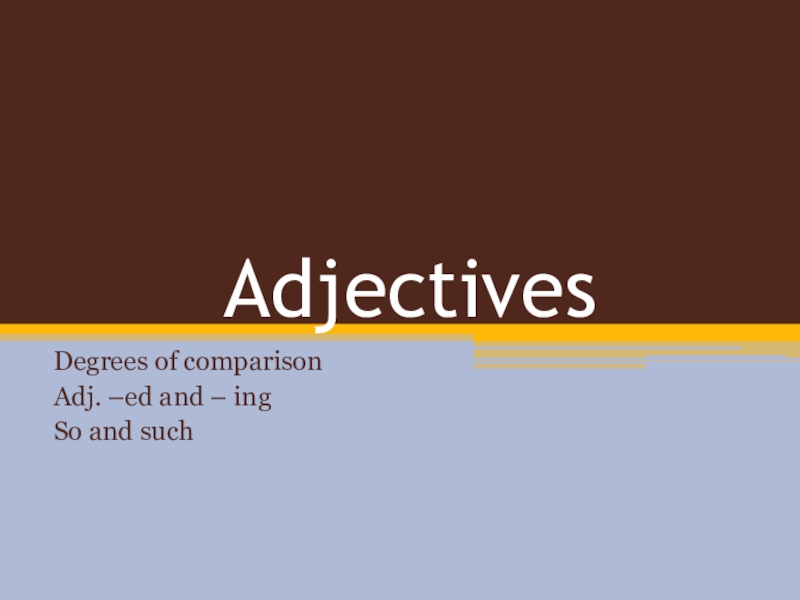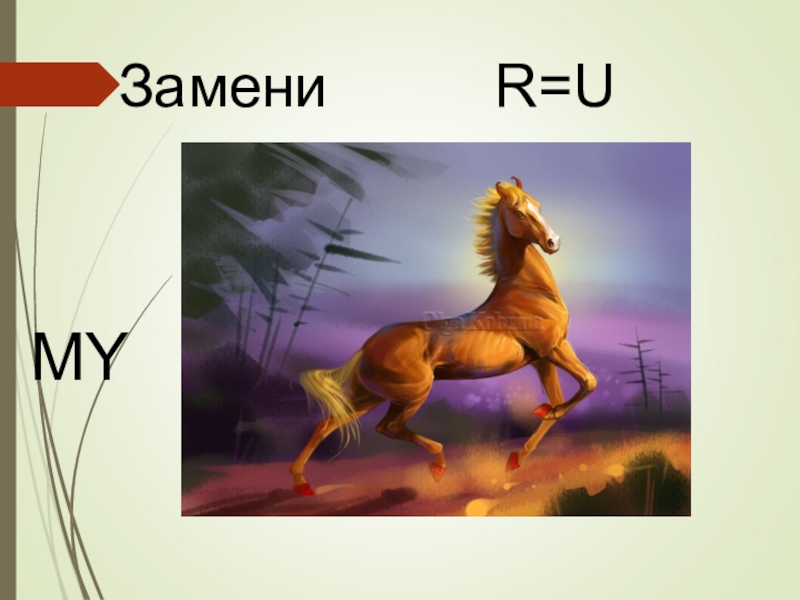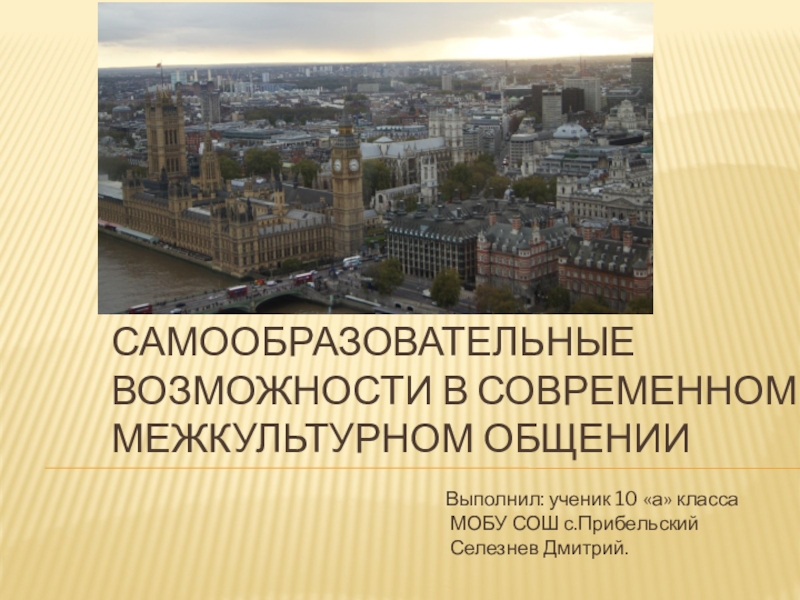- Главная
- Разное
- Образование
- Спорт
- Естествознание
- Природоведение
- Религиоведение
- Французский язык
- Черчение
- Английский язык
- Астрономия
- Алгебра
- Биология
- География
- Геометрия
- Детские презентации
- Информатика
- История
- Литература
- Математика
- Музыка
- МХК
- Немецкий язык
- ОБЖ
- Обществознание
- Окружающий мир
- Педагогика
- Русский язык
- Технология
- Физика
- Философия
- Химия
- Шаблоны, фоны, картинки для презентаций
- Экология
- Экономика
Презентация, доклад английскому языку на тему: Syntax how to understand it
Содержание
- 1. Презентация английскому языку на тему: Syntax how to understand it
- 2. Syntax – definition Syntax is the grammatical
- 3. USEWord order is very important in English,
- 4. USEA normal sentence in English usually contains at least
- 5. USEEvery language has rules of syntax, and
- 6. USEIt is important to make a distinction
- 7. USEThe construction of the passive voice is
- 8. USEThe difference between the two versions is
- 9. Syntax in Exclamatory Sentences "Well, here's another
- 10. Syntax in Imperative Sentences "Abandon all hope,
- 11. Syntax in Interrogative Sentences "But sometimes you
- 12. Slang Syntax in Literature “If I must
- 13. Syntax in Literature from the Past Shakespeare
Syntax – definition Syntax is the grammatical arrangement of words in a sentence. It concerns both word order and agreement in the relationship between words. Syntax is primarily concerned with structure of sentences.
Слайд 2Syntax – definition
Syntax is the grammatical arrangement of words in a
sentence.
It concerns both word order and agreement in the relationship between words.
Syntax is primarily concerned with structure of sentences.
It concerns both word order and agreement in the relationship between words.
Syntax is primarily concerned with structure of sentences.
Слайд 3USE
Word order is very important in English, because the language is
no longer inflected. That is, individual words do not have endings to show which parts of speech they represent.
Changes to conventional synatx are often used to create dramatic, poetic, or comic effect.
For instance, poets and song lyricists often change syntactic order to create rhythmic effects:
“I’ll sing to him, each spring to him And long for the day when I’ll cling to him, Bewitched, bothered and bewildered am I.”
[RICHARD ROGERS]
Changes to conventional synatx are often used to create dramatic, poetic, or comic effect.
For instance, poets and song lyricists often change syntactic order to create rhythmic effects:
“I’ll sing to him, each spring to him And long for the day when I’ll cling to him, Bewitched, bothered and bewildered am I.”
[RICHARD ROGERS]
Слайд 4USE
A normal sentence in English usually contains at least three elements: subject, verb, and object.
SUBJECT VERB
OBJECT
The cat eats the goldfish.
John likes football.
Mary chose the wallpaper.
The cat eats the goldfish.
John likes football.
Mary chose the wallpaper.
Слайд 5USE
Every language has rules of syntax, and to the linguist the
essential rules are descriptive. They are the rules which underpin the life of the language and which are extremely slow to change.
These are not to be confused with the presecriptive ‘rules’ of traditional grammar [For instance, ‘Never end a sentence with a preposition’].
An example of a descriptive rule of English syntax is that in the imperative in English, the verb takes the initial position in the sentence, usually directly before the noun which is the object.
Put those books on the table. Take the lid off after half an hour. Remove all packaging before heating the soup. Isolate the switch in case of fault.
These are not to be confused with the presecriptive ‘rules’ of traditional grammar [For instance, ‘Never end a sentence with a preposition’].
An example of a descriptive rule of English syntax is that in the imperative in English, the verb takes the initial position in the sentence, usually directly before the noun which is the object.
Put those books on the table. Take the lid off after half an hour. Remove all packaging before heating the soup. Isolate the switch in case of fault.
Слайд 6USE
It is important to make a distinction between grammar and syntax, and to
realise that syntax is a component of grammar.
The term ‘grammar’ refers to the whole structure of the language including the naming of its parts, its rules of tense, and its sound system. It is a comprehensive term.
Syntax only refers to the relationship between the grammatical components of language in use. In other words it is the nature, quality or type of relationship between terms in any given statement which is the province of syntax.
The term ‘grammar’ refers to the whole structure of the language including the naming of its parts, its rules of tense, and its sound system. It is a comprehensive term.
Syntax only refers to the relationship between the grammatical components of language in use. In other words it is the nature, quality or type of relationship between terms in any given statement which is the province of syntax.
Слайд 7USE
The construction of the passive voice is a syntactic issue, as
it involves word order. The following statement is in the passive voice:
A woman was run over in central London today by a vehicle travelling at high speed.
If we transfer this to the active voice, we have:
A vehicle travelling at high speed ran over a woman in central London today.
The semantic content is similar in the two statements, but the emphasis is changed according to whether it is expressed as active or passive.
A woman was run over in central London today by a vehicle travelling at high speed.
If we transfer this to the active voice, we have:
A vehicle travelling at high speed ran over a woman in central London today.
The semantic content is similar in the two statements, but the emphasis is changed according to whether it is expressed as active or passive.
Слайд 8USE
The difference between the two versions is dependent on the positioning
of the subject and the object in the sentence. In the passive version, the object takes the initial position. This is a syntactic principle
Слайд 9Syntax in Exclamatory Sentences
"Well, here's another nice mess you've gotten me
into!" - Oliver Hardy in Sons of the Desert
"It's alive! It's alive!" - Frankenstein
"I can't believe it! Reading and writing actually paid off!" - Homer Simpson in The Simpsons
"What a grand thing, to be loved! What a grander thing still, to love!" - Victor Hugo
"How sad is the soul, when it is sad through love!" - Les Miserables by Victor Hugo
"It's alive! It's alive!" - Frankenstein
"I can't believe it! Reading and writing actually paid off!" - Homer Simpson in The Simpsons
"What a grand thing, to be loved! What a grander thing still, to love!" - Victor Hugo
"How sad is the soul, when it is sad through love!" - Les Miserables by Victor Hugo
Слайд 10Syntax in Imperative Sentences
"Abandon all hope, ye who enter here!" - The
Divine Comedy by Dante
"Forget them, Wendy. Forget them all. Come with me where you'll never, never have to worry about grown up things again." - Peter Pan
"Carpe diem. Seize the day, boys. Make your lives extraordinary." - Dead Poets Society
Take me out to the ball game, Take me out with the crowd. - "Take Me Out to the Ball Game" by Jack Norworth and Albert Von Tilzer
"Forget them, Wendy. Forget them all. Come with me where you'll never, never have to worry about grown up things again." - Peter Pan
"Carpe diem. Seize the day, boys. Make your lives extraordinary." - Dead Poets Society
Take me out to the ball game, Take me out with the crowd. - "Take Me Out to the Ball Game" by Jack Norworth and Albert Von Tilzer
Слайд 11Syntax in Interrogative Sentences
"But sometimes you might make the wrong decisions,
comrades, and then where should we be?" - Animal Farm by George Orwell
"Wouldn't it be fun if all the castles in the air which we make could come true and we could live in them?" - Little Women by Louisa May Alcott
"Is it really possible to tell someone else what one feels?" - Anna Karenina by Leo Tolstoy
"And have I not told you that what you mistake for madness is but over-acuteness of the sense?" - The Tell-Tale Heart by Edgar Allan Poe
"Wouldn't it be fun if all the castles in the air which we make could come true and we could live in them?" - Little Women by Louisa May Alcott
"Is it really possible to tell someone else what one feels?" - Anna Karenina by Leo Tolstoy
"And have I not told you that what you mistake for madness is but over-acuteness of the sense?" - The Tell-Tale Heart by Edgar Allan Poe
Слайд 12Slang Syntax in Literature
“If I must be sold, or all the
people on the place, and everything go to rack, why, let me be sold. I s'pose I can b'ar it as well as any on 'em." - Uncle Tom's Cabin by Harriet Beecher Stowe
"We me an Star are waitin for Boxy his head. Waitin standin in the fone box in the station of Wolfer Humpton holdin the letter what we have tapped in the number from." - Boxy an Star by Daren King
"When nine hundred years old you reach, look as good you will not, hmm?" - Yoda in Star Wars
C'mon babe, Why don't we paint the town? And all that jazz - Cast of Chicago
"We me an Star are waitin for Boxy his head. Waitin standin in the fone box in the station of Wolfer Humpton holdin the letter what we have tapped in the number from." - Boxy an Star by Daren King
"When nine hundred years old you reach, look as good you will not, hmm?" - Yoda in Star Wars
C'mon babe, Why don't we paint the town? And all that jazz - Cast of Chicago
Слайд 13Syntax in Literature from the Past
Shakespeare often reversed the order in
sentences:
- by putting a verb at the end of the sentence as in Romeo and Juliet: "What light from yonder window breaks?"
- as in "and all the clouds that lowered upon our house buried in the deep bosom of the ocean." from Richard III
In the Miller's Prologue from The Canterbury Tales by Geoffrey Chaucer, 'kan' is used as a main verb:
I kan a noble tale for the nones, With which I wol now quite the Knyghtes tale.
Geoffrey Chaucer also changed the word endings in The Prologue to The Canterbury Tales:
And smale fowles maken melodye, That slepen al the night with open ye,
- by putting a verb at the end of the sentence as in Romeo and Juliet: "What light from yonder window breaks?"
- as in "and all the clouds that lowered upon our house buried in the deep bosom of the ocean." from Richard III
In the Miller's Prologue from The Canterbury Tales by Geoffrey Chaucer, 'kan' is used as a main verb:
I kan a noble tale for the nones, With which I wol now quite the Knyghtes tale.
Geoffrey Chaucer also changed the word endings in The Prologue to The Canterbury Tales:
And smale fowles maken melodye, That slepen al the night with open ye,


















